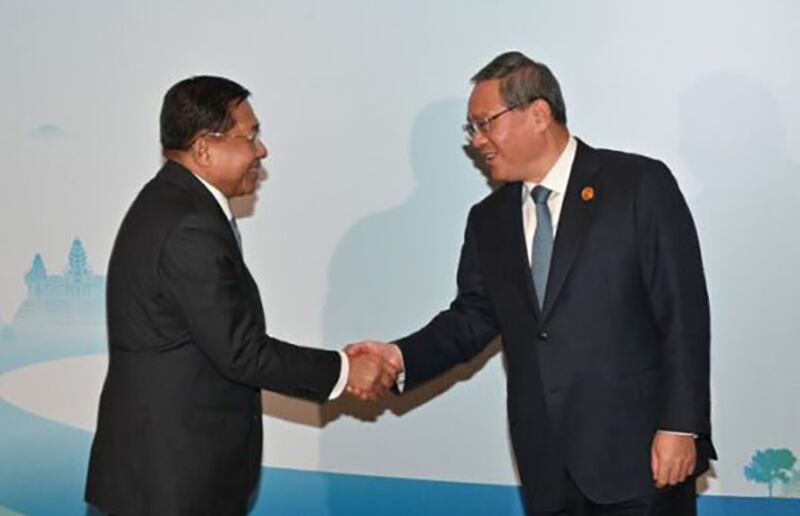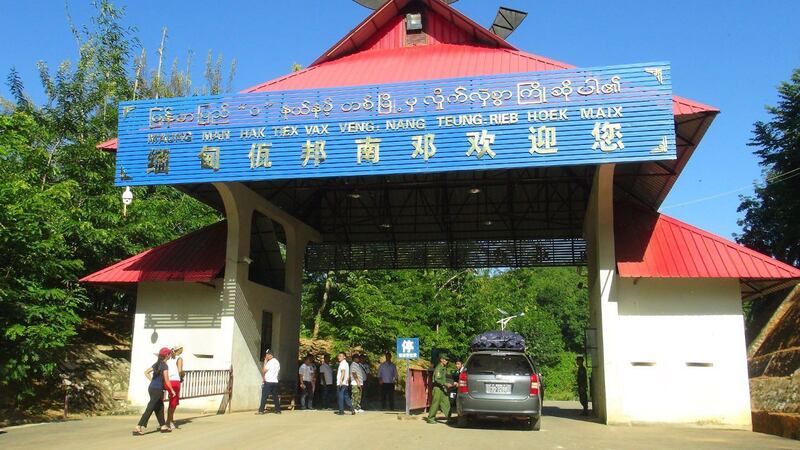Residents in northern Myanmar are facing shortages of food and other supplies as China imposes restrictions on small-scale, informal trade, Radio Free Asia has learned.
The restrictions are centered on three border crossings, two of which have been recently shut down, in the northeastern town of Muse, which lies across the border from China’s Ruili,
Video posted on social media showed fresh fruit sellers in China giving their product away because they could not get it across the border before it spoils.
More than 2 million residents in northern Shan state rely on Chinese foodstuffs and goods. The closures have resulted in price hikes.
At the Muse border, the price of one liter (.26 gallons) of gasoline has risen to more than 10 thousand kyats ($4.76), while a bag of low-quality rice has almost doubled, a resident there told RFA.
“Every item has been expensive due to the closure of border gates. Business is not good,” he said. “People are facing various challenges in their daily lives.”
The restrictions have increased in the wake of junta leader Min Aung Hlaing’s recent visit to China, but it isn’t immediately clear if the two are linked.

During his visit, he met with Premier Li Qiang and discussed control of border trade between the two countries, according to junta reports.
Junta spokesperson Major Gen. Zaw Min Tun stated during a press conference following the military chief’s return from China that both sides discussed border stability and agreed not to allow opponents of the junta regime to operate on Chinese territory, and vice versa.
Vehicles stuck
The government announced closure of one of Muse’s three border gates last week, but now there are two gates closed.
The closures have blocked the crossing of more than 300 vehicles, including grocery trucks headed for Myanmar, and these vehicles are now stranded, a border trade merchant said.
Additionally, private vehicles hoping to cross the border with goods have become stranded, a Chinese driver told RFA.

“The traffic-police from the Chinese side have recorded the number plates of vehicles stranded at Mang Wein gate,” he said.
“We do not see any significant development until now. Frozen seafood has been unloaded from the cars into garages. About 60 percent of trucks are loaded with potatoes. While Chinese officials allowed the use of Mang Wein gate, the junta officials do not allow the use of this gate on their side”
RFA attempted to contact the junta’s spokesperson for the Ministry of Commerce but he was not available.
RFA emailed the Chinese Embassy in Myanmar on Thursday seeking comments on the further restrictions on small-scale informal cross-border trade. However, no response was recieved.
Translated by Aung Naing. Edited by Eugene Whong and Malcolm Foster.
